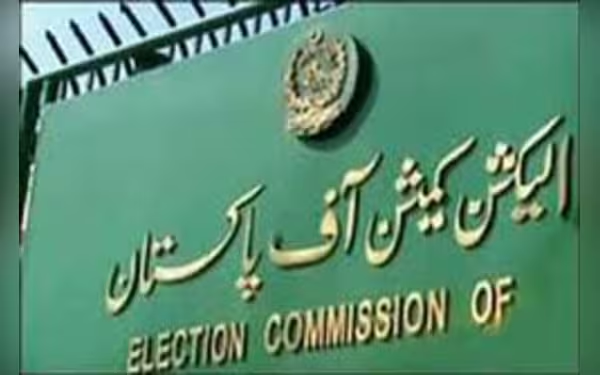Monday, November 25, 2024 10:58 AM
ECP Disqualifies Adil Bazai Over Floor-Crossing Allegations
- ECP disqualifies Adil Khan Bazai for floor-crossing.
- Bazai switched allegiance from PML-N to SIC.
- Nawaz Sharif initiated disqualification reference.
 Image Credits: nation_pk
Image Credits: nation_pkECP disqualifies Adil Bazai for floor-crossing, raising concerns over political integrity in Pakistan.
In a significant development in Pakistan's political landscape, the Election Commission of Pakistan (ECP) has disqualified Adil Khan Bazai, a Member of the National Assembly (MNA) from Balochistan. This decision comes in the wake of allegations of floor-crossing during the passage of the 26th Constitutional Amendment. Floor-crossing refers to the act of a member of a legislative body changing their political allegiance, which is often viewed as a breach of trust by the electorate.
Adil Khan Bazai, who was elected from a constituency in Quetta during the general elections held on February 8, had initially submitted an affidavit declaring his allegiance to the ruling party, the Pakistan Muslim League - Nawaz (PML-N). However, shortly thereafter, he switched his loyalty to the Sunni Ittehad Council (SIC). This abrupt change raised eyebrows and led to a formal complaint against him.
In response to the situation, Bazai's lawyer claimed that the affidavit he submitted was fake, arguing that it should not be considered valid. Despite this defense, the ECP took decisive action, disqualifying Bazai from his position as MNA. The matter was initially brought to the attention of the ECP by Speaker of the National Assembly, Sardar Ayaz Sadiq, who referred Bazai's name for disqualification, urging that he be de-seated due to his floor-crossing.
The reference for disqualification was sent by Nawaz Sharif, the President of PML-N, to the Speaker of the National Assembly, who then forwarded it to the ECP. The ECP issued notices to both the complainant, Nawaz Sharif, and Bazai regarding the announcement of the order. This incident highlights the ongoing tensions within Pakistan's political framework, where loyalty and party allegiance are critical to maintaining stability.
As the political landscape continues to evolve, the disqualification of Adil Khan Bazai serves as a reminder of the importance of integrity and accountability in governance. It raises questions about the future of political alliances in Pakistan and how such decisions will impact the electorate's trust in their representatives. The ECP's actions may deter other members from engaging in similar floor-crossing activities, thereby reinforcing the principles of democratic representation.













